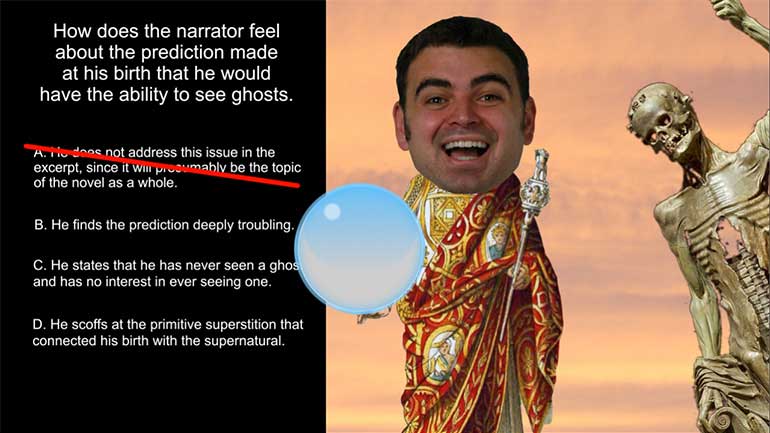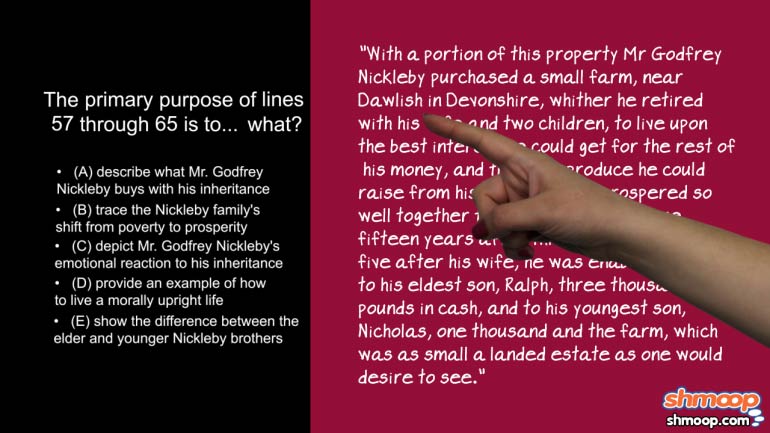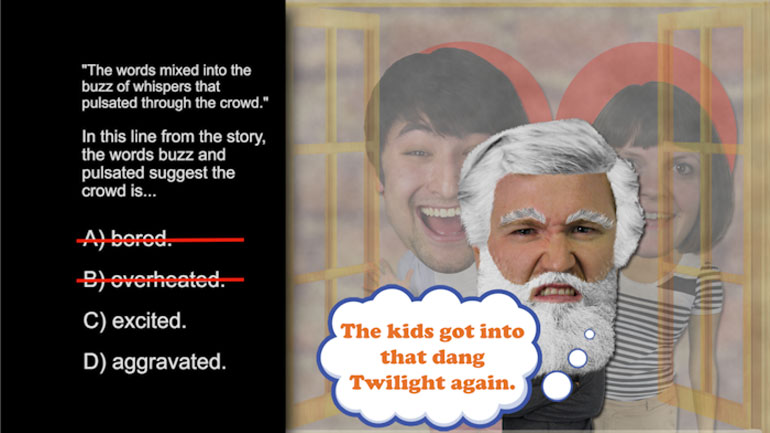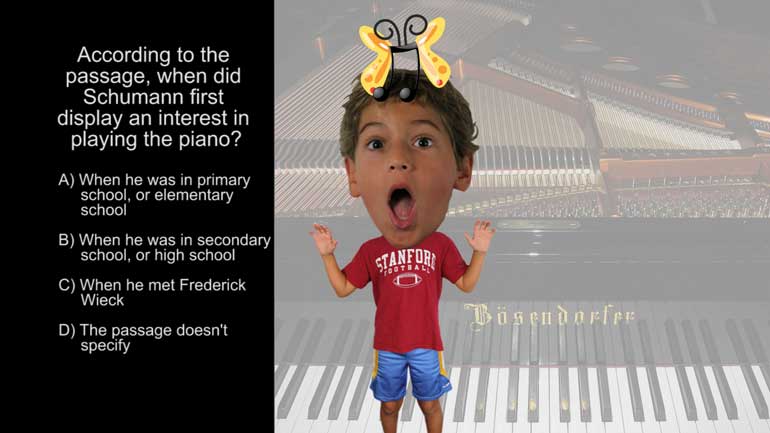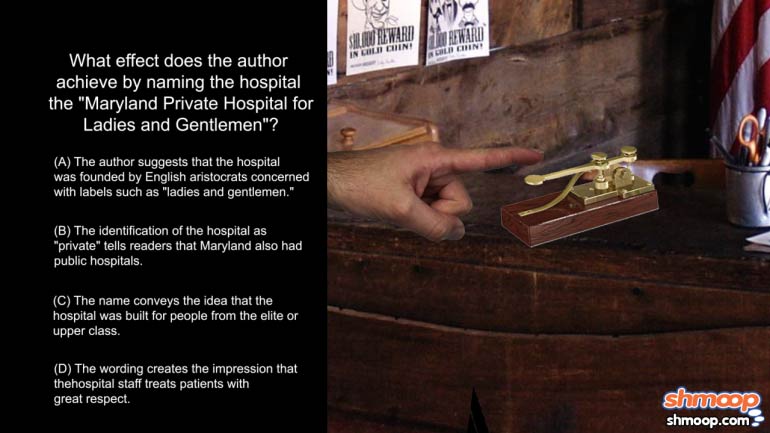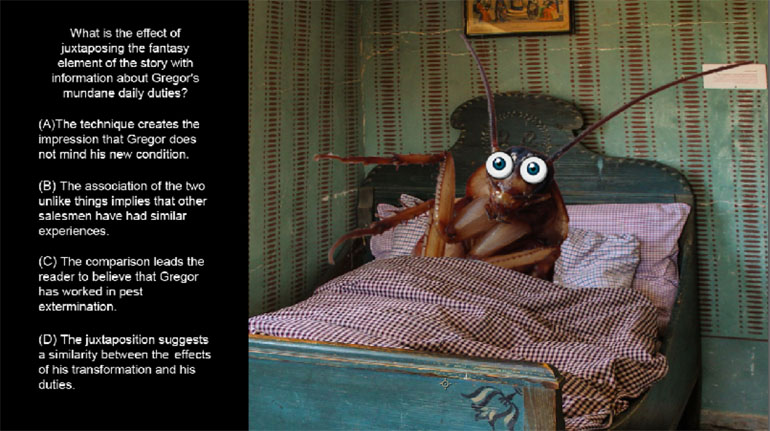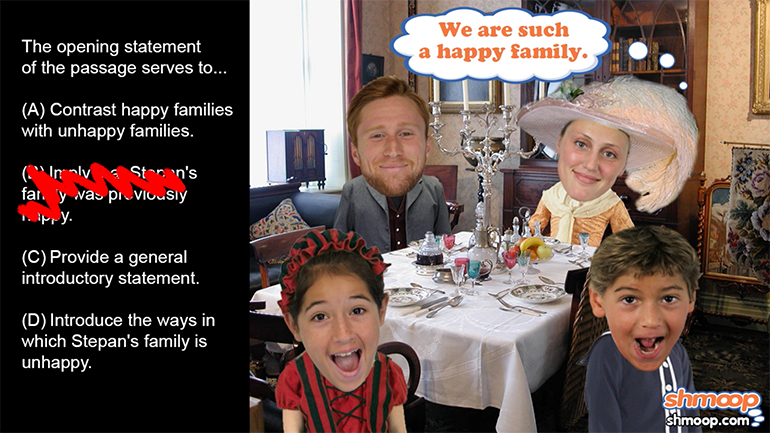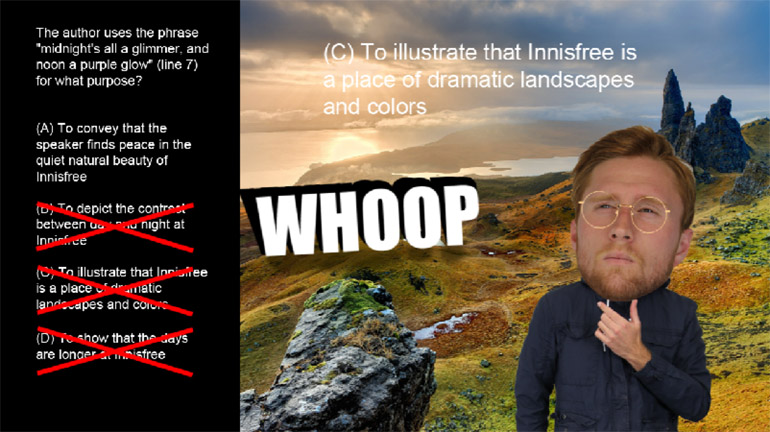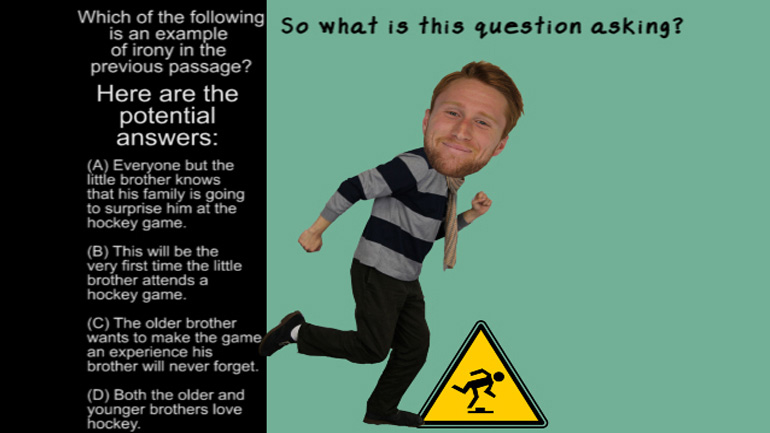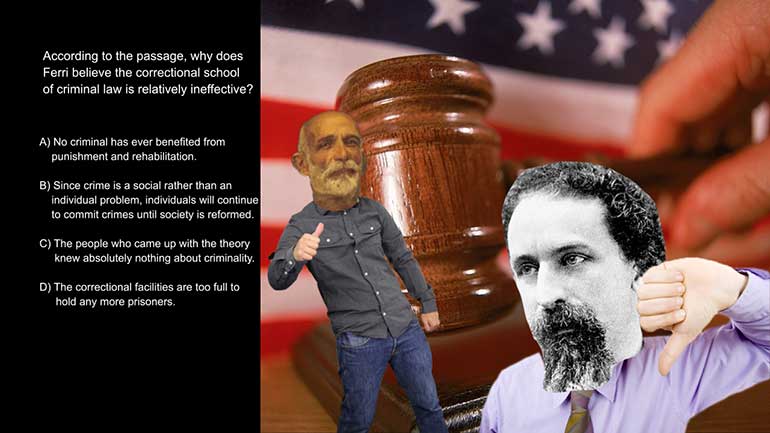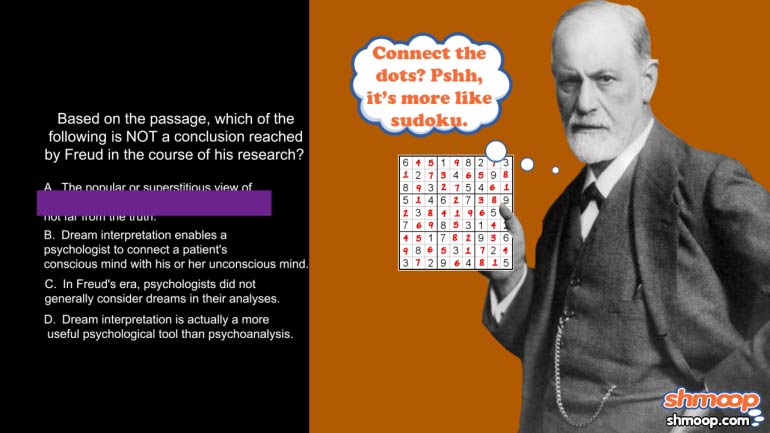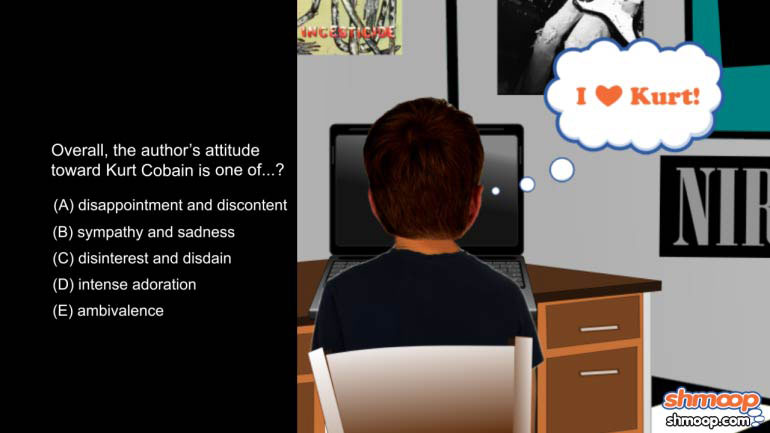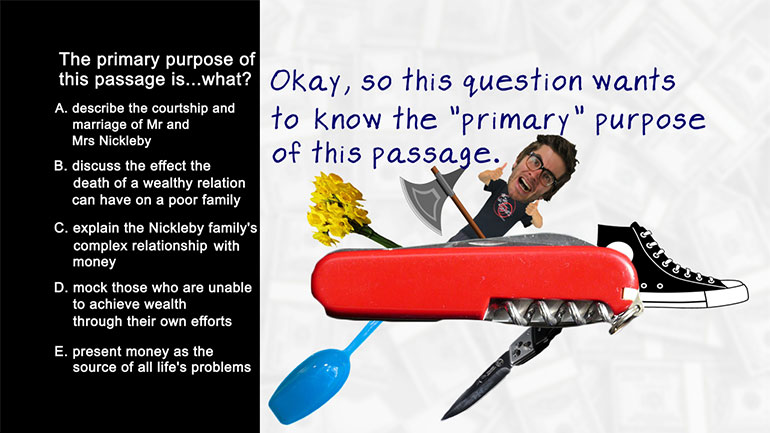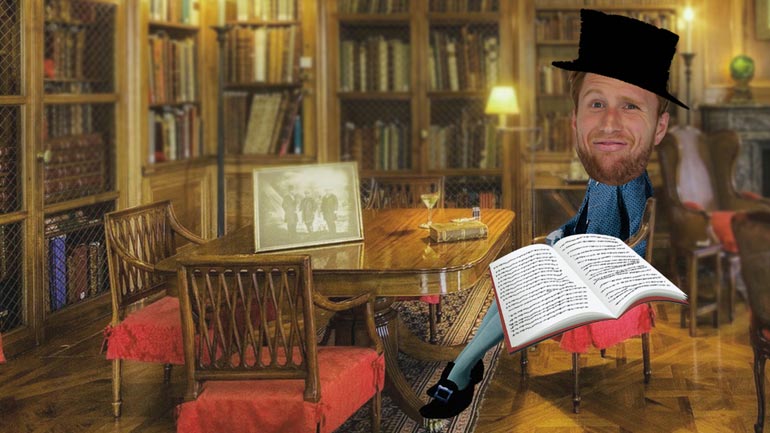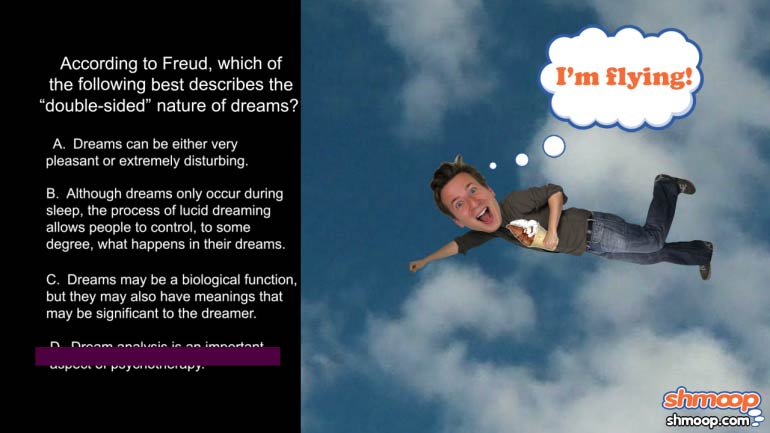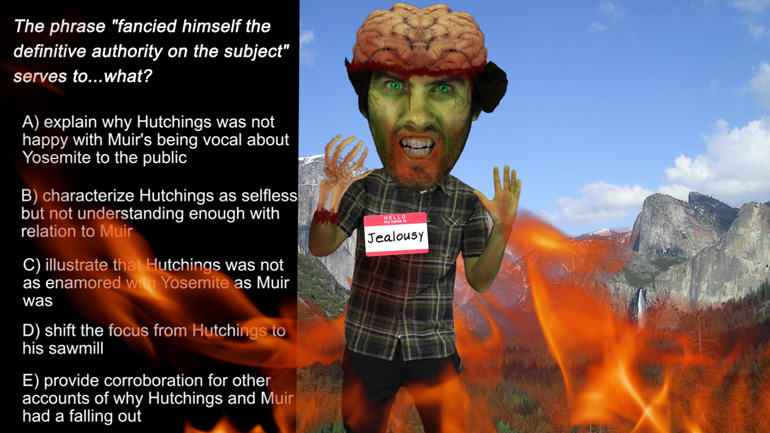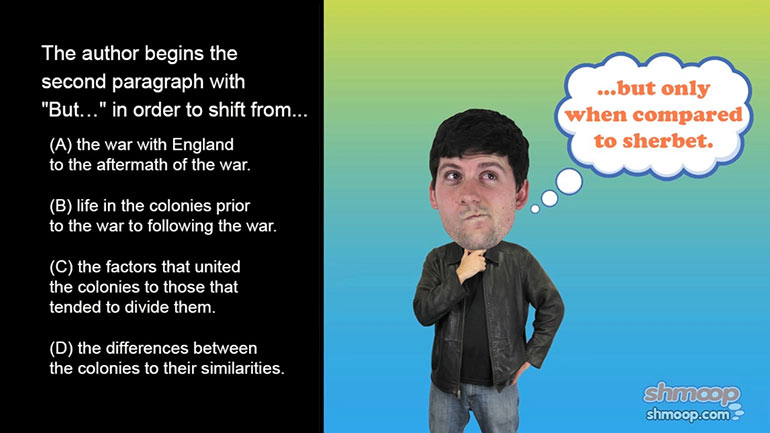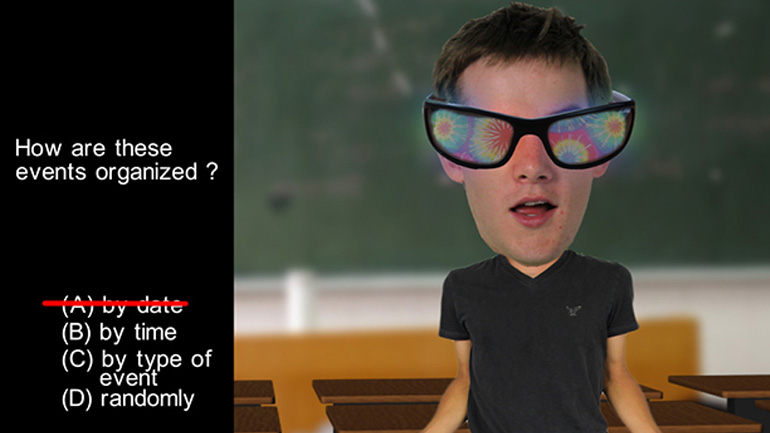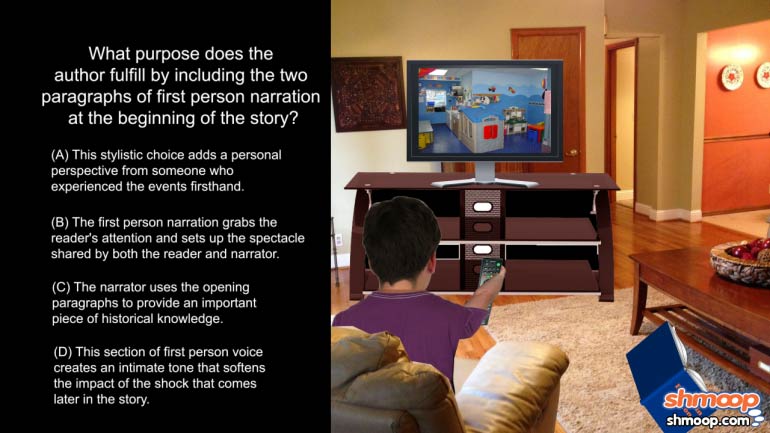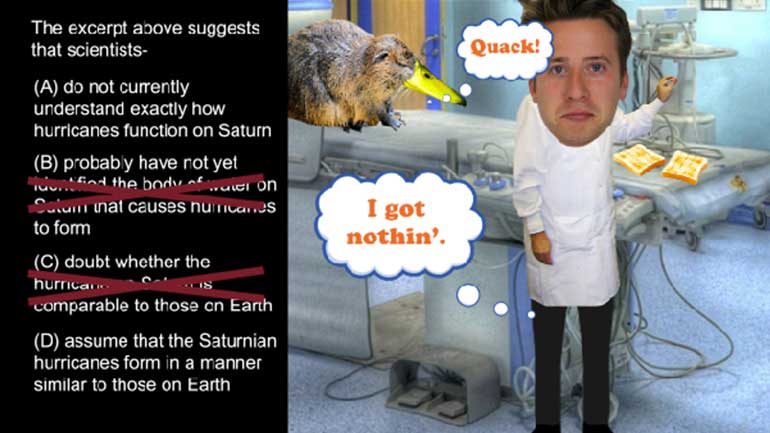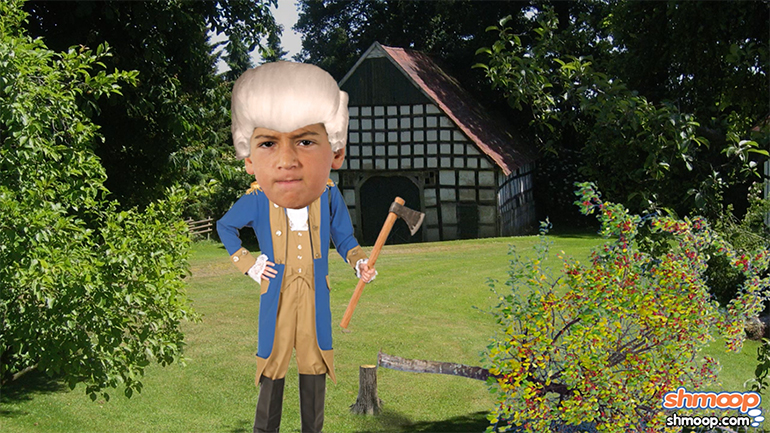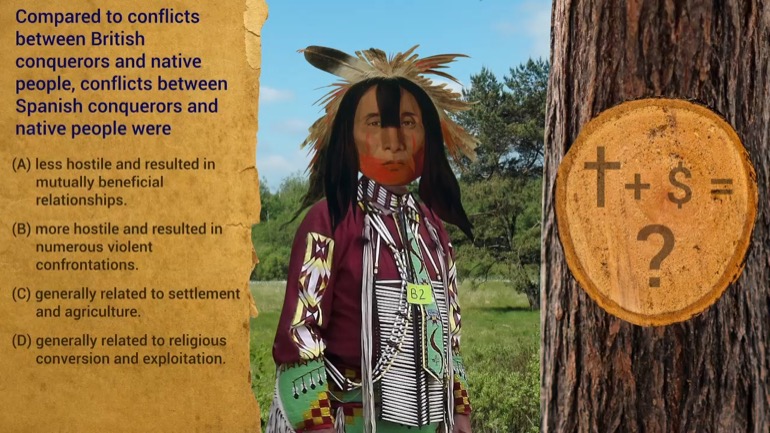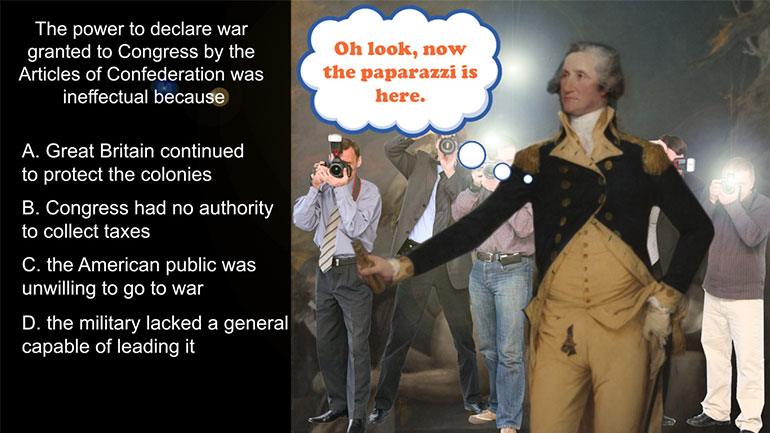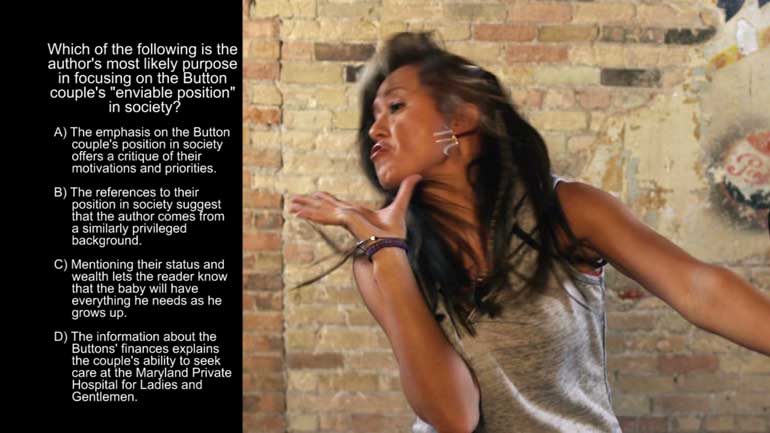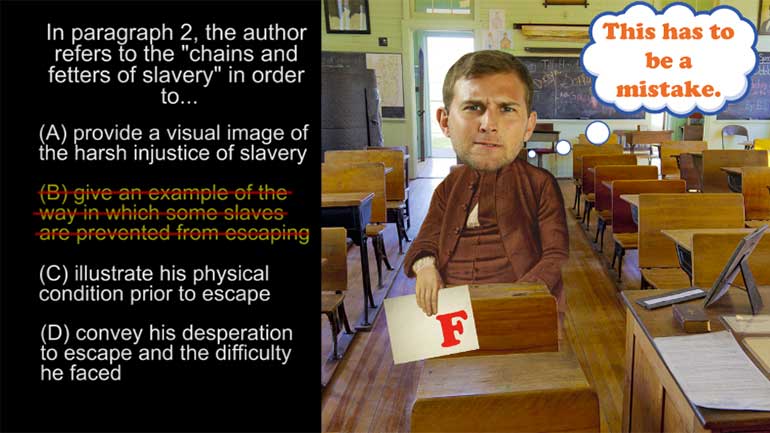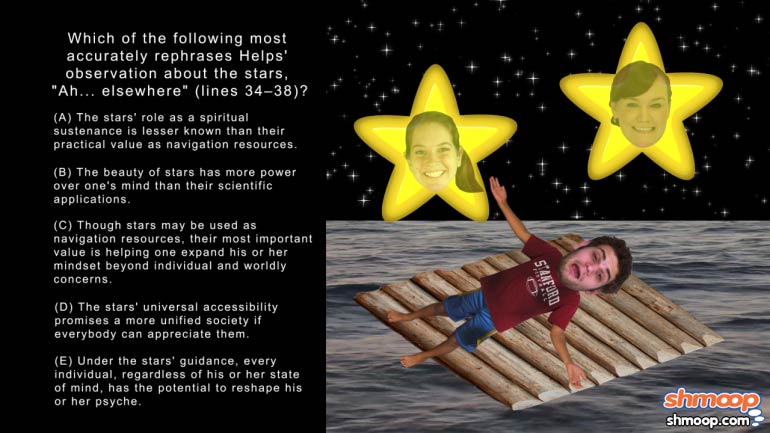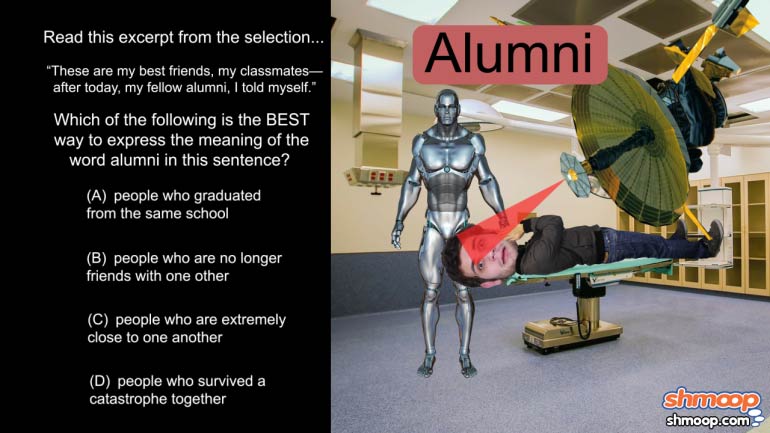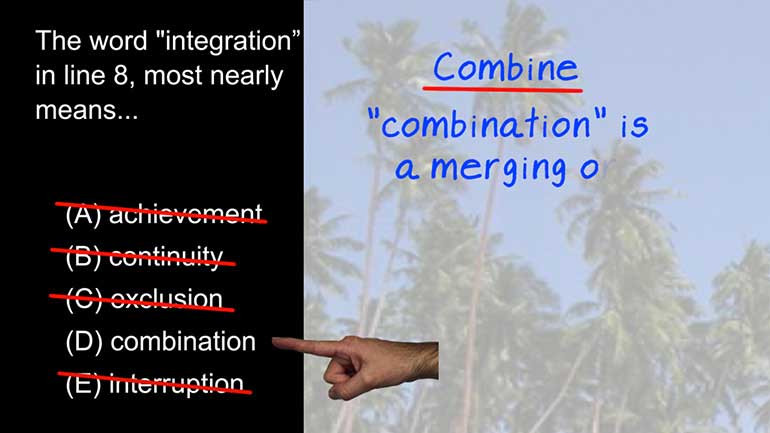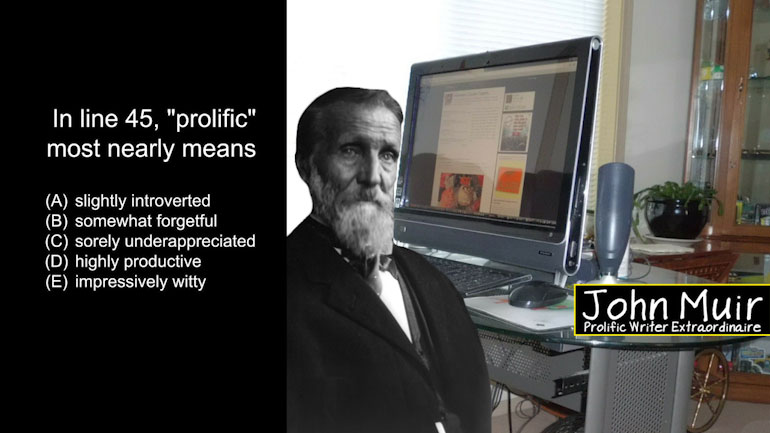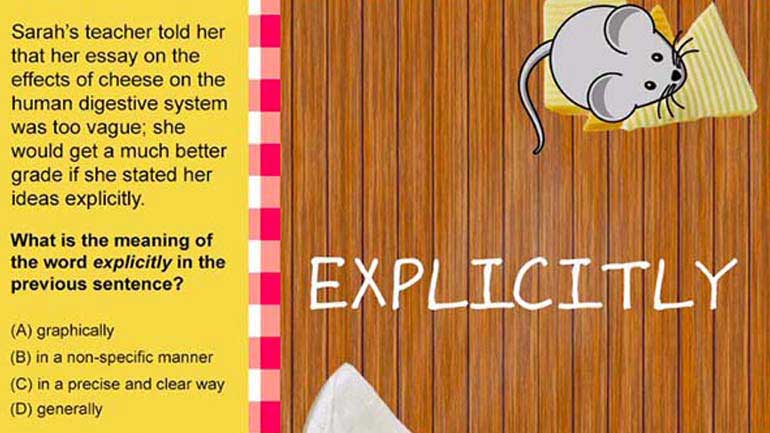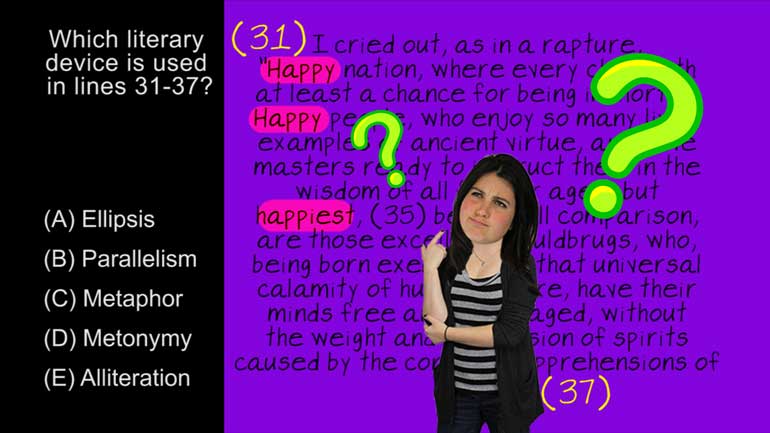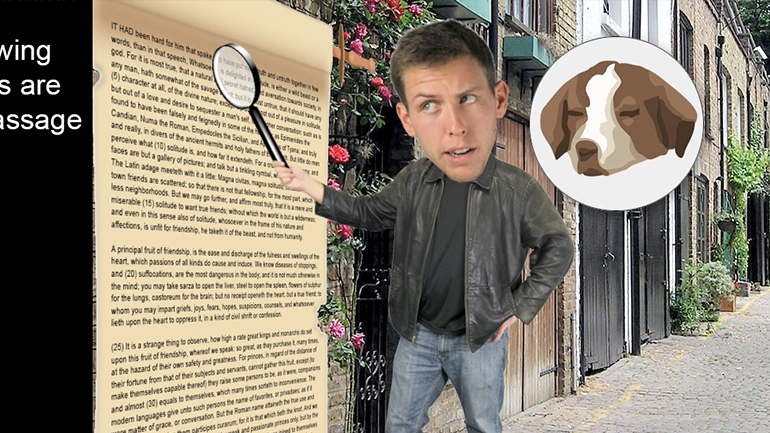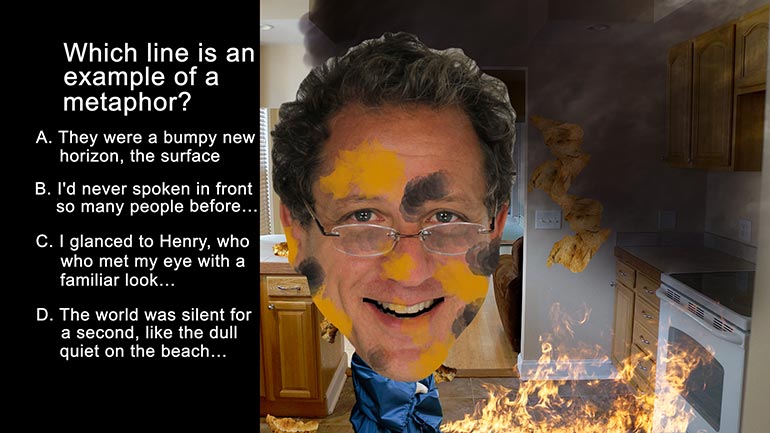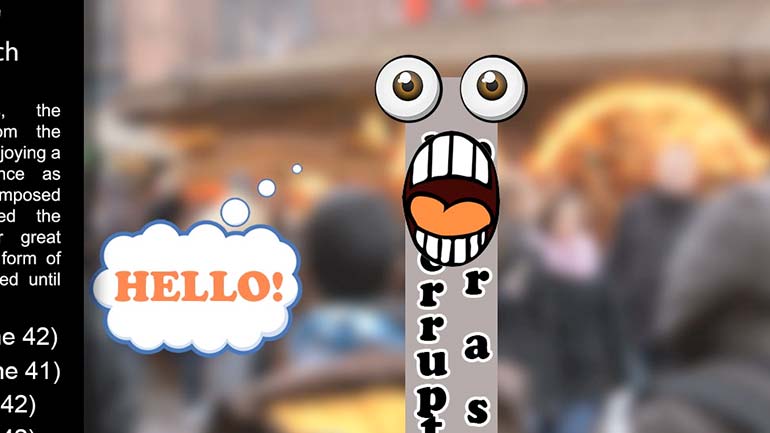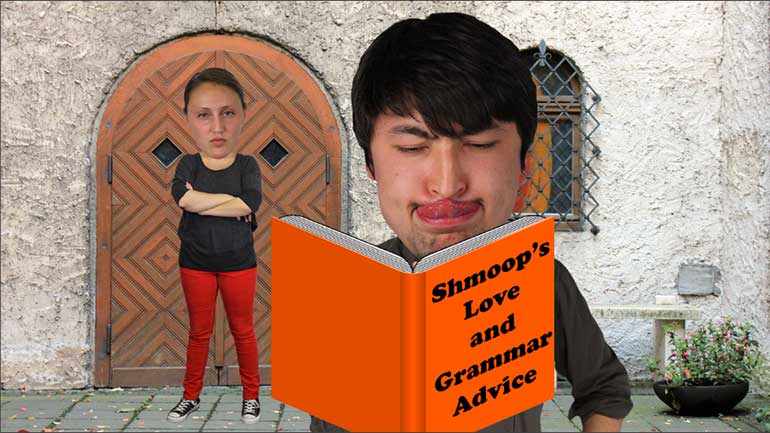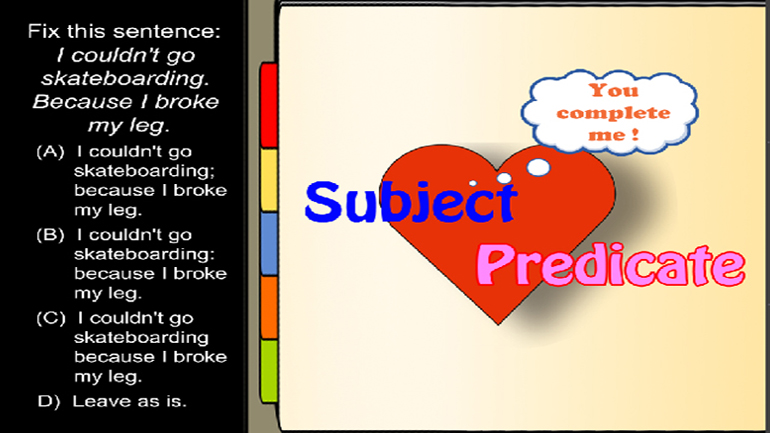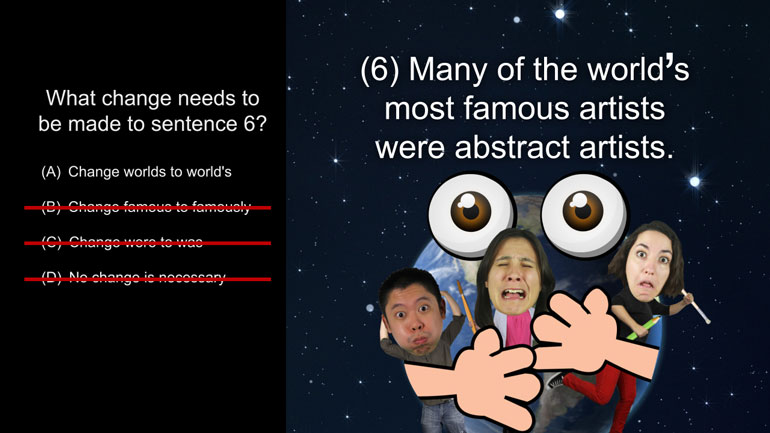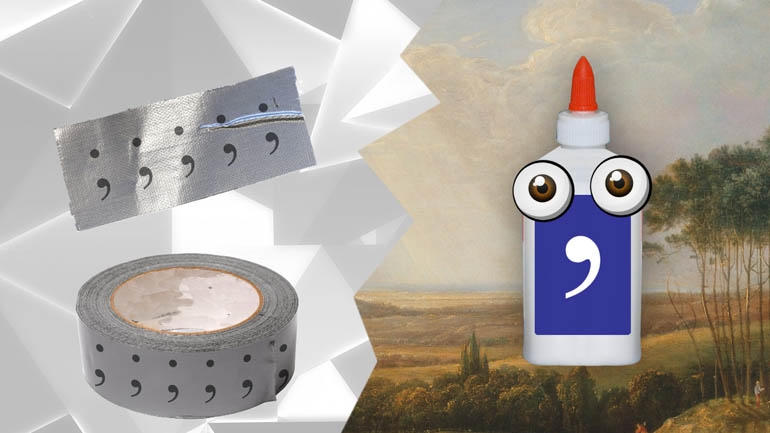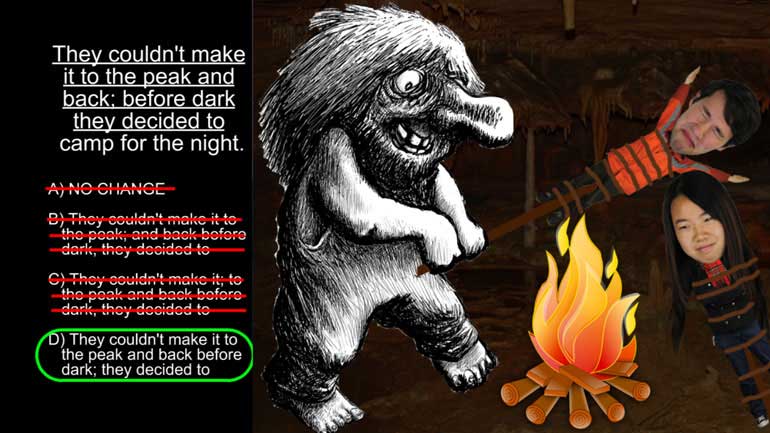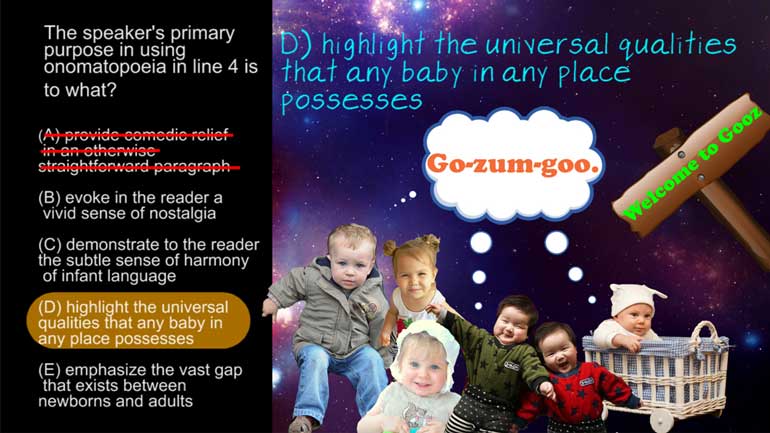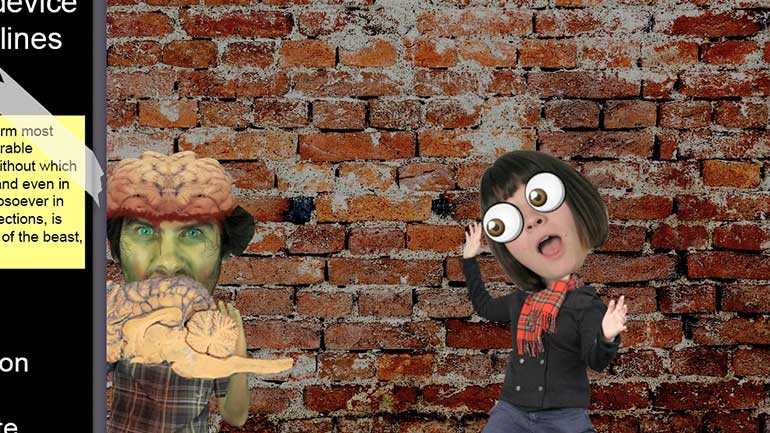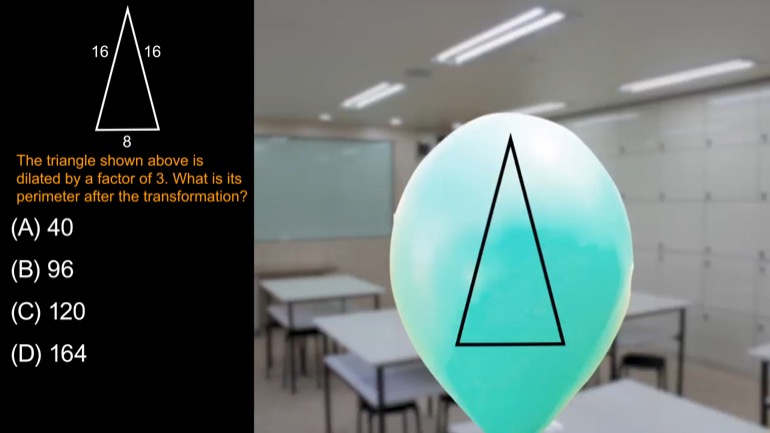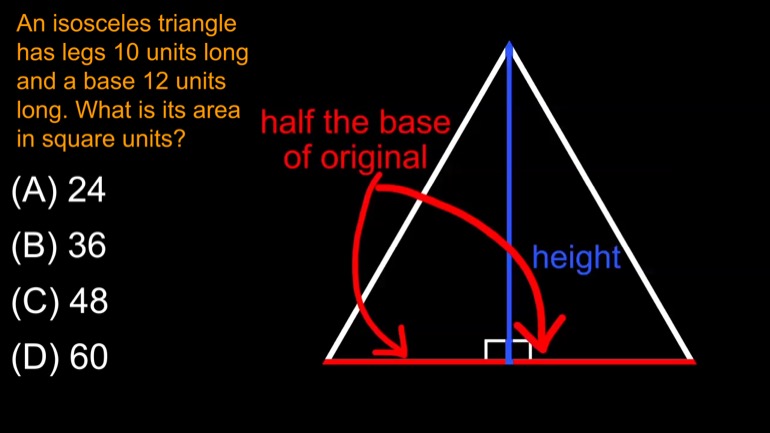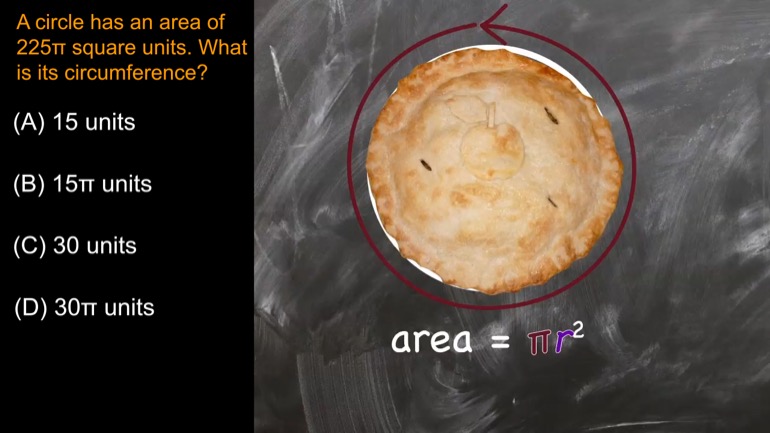ShmoopTube
Where Monty Python meets your 10th grade teacher.
Search Thousands of Shmoop Videos
English III Videos 83 videos
ACT Reading Prose Fiction Drill 1, Problem 4. How does the narrator feel about the prediction made at his birth that he would have the ability...
AP® English Language and Composition: Comprehension Drill 1, Problem 1. The speaker would agree with all of the following statements except what?
AP English Literature and Composition 1.6 Passage Drill 5. Death is primarily characterized as what?
Figure Out the Primary Rhetorical Function of the Quote 262 Views
Share It!
Description:
He or she that answereth this question shall...answereth it. And hopefully feel kind of accomplished. Hit play and figure out the primary rhetorical function of the quote.
- Reading Assessment / Rhetorical Strategies and Use of Evidence
- Conventions / Apply knowledge of language to make effective choices for meaning or style
- Conventions / Apply knowledge of language to make effective choices for meaning or style
- Conventions / Apply knowledge of language to make effective choices for meaning or style
- Rhetorical Function, Strategy, and Purpose / Rhetorical Function
Transcript
- 00:00
[ musical flourish ]
- 00:03
And here's your Shmoop du jour, brought to you by argumentation.
- 00:07
Because sometimes, conflict resolution is for chumps.
- 00:10
We've seen it. That's what happens.
- 00:12
All right.
Full Transcript
- 00:13
Check out the passage. We've read this how many times now?
- 00:15
[ mumbles ]
- 00:21
[ mumbling continues ]
- 00:30
All right, we're done.
- 00:31
The primary rhetorical function of the quotes in lines
- 00:35
23 through 24 - right here -
- 00:38
is to what?
- 00:39
All right, and here are the potential answers. Hmm.
- 00:41
[ mumbles ]
- 00:46
All right, well, "he that loveth his life shall lose it."
- 00:50
This lovely yet very depressing quote supports the speaker's argument
- 00:55
which is that it's dangerous to think that we have control over our lives.
- 00:59
This idea supports the larger argument,
- 01:01
the one that says that humans are wrong to think that we can totally understand the world.
- 01:05
All of this then ties into the thesis, or main argument, about
- 01:09
how we oughta separate ethical beliefs from philosophy.
- 01:13
Is it us or is this guy doing a lot of arguing?
- 01:16
All right, well, we can see why option A might make sense.
- 01:19
However, the quote doesn't go as far as actually reiterating, or restating,
- 01:23
the speaker's thesis.
- 01:24
The quote's simply lending a helping hand, not hitting us
- 01:27
over the head with the thesis one more time.
- 01:29
It's always welcome to try, though. We brought a helmet.
- 01:32
Option E is sort of right.
- 01:34
It's the only quote in the passage, so it does change up the structure a bit.
- 01:38
We're all for changing up structures.
- 01:41
Yeah, kind of like that.
- 01:42
Option C is a definite no.
- 01:44
We already said that the speaker is using the quote to support
- 01:47
his views, not to contradict them.
- 01:49
This might make option B look like a good answer,
- 01:52
but it's not.
- 01:53
Including a quote that sounds a hundred years old can be impressive,
- 01:56
but this quote has bigger fish to fry.
- 01:58
The correct answer is D. It's the only answer that gets
- 02:02
how the quote supports an argument...
- 02:04
that supports a bigger argument... that supports an even bigger argument.
- 02:07
It's like one building block
- 02:09
in the massive Lego masterpiece we spent our entire
- 02:12
adolescence working on.
- 02:13
[ singing ] Cause everything is awesome...
- 02:16
[ umm... ]
Related Videos
The details in the passage suggest that Rikki-tikki is(A)cold-hearted and expressionless(B)experienced in fighting cobras(C)overcome with fear and...
Which phrase best describes the conflict Rikki-tikki has with Nag and Nagaina?(A)engaging in a physical battle(B)making a difficult decision(C)stan...
What effect do the words "hiss," "whizzed," and "chattered" have on the passage?(A)They allow the reader to visualize the action.(B)They provide au...
What does the young maiden represent in the poem?(A)fear and secrecy(B)love and passion(C)beauty and influence(D)recklessness and freedom
Which combination of words from the passage creates a mood of healing?(A)"was never sown" and "A lady of my own"(B)"the breathing balm" and "silenc...
